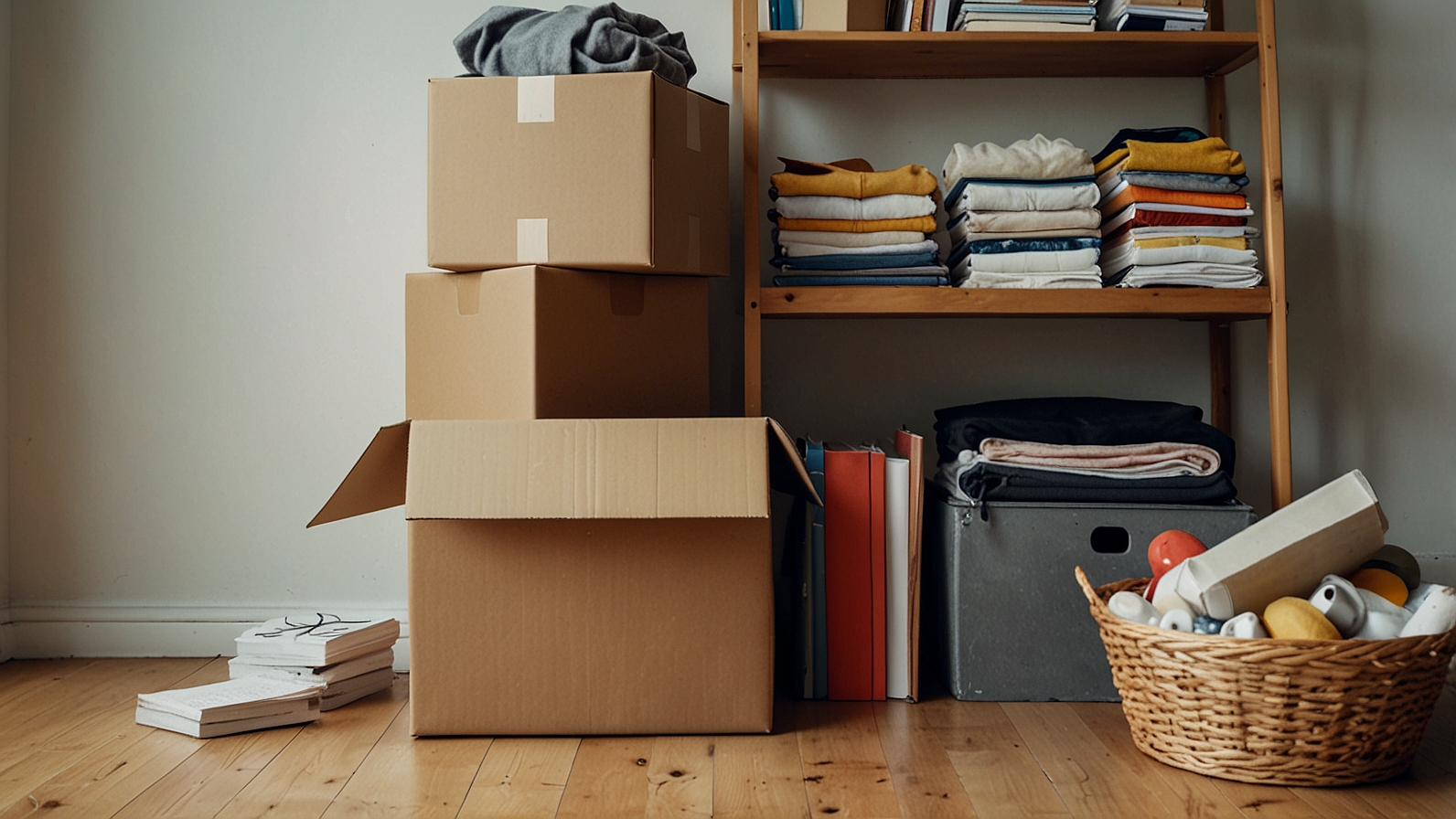In a world that often equates success with accumulation—of possessions, responsibilities, and commitments—decluttering offers a refreshing counterbalance. It’s more than tidying up your living space; it’s a mindset shift, a way to evaluate what truly matters and release what no longer serves you. The decluttering mentality is about reclaiming your time, space, and mental clarity, allowing you to focus on what aligns with your values and aspirations.
The Emotional Weight of Clutter
Clutter isn’t just physical; it can have emotional and psychological implications. A cluttered space can lead to feelings of overwhelm, stress, and even guilt. Each item you keep, consciously or not, occupies mental space. Perhaps it’s a piece of clothing you feel guilty for not wearing or a gadget that represents wasted money. These unresolved feelings can build up, leaving you stuck in the past or anxious about the future.
The decluttering mentality encourages you to confront these attachments. By letting go of items that no longer add value to your life, you make room for clarity and peace of mind.
Understanding What No Longer Serves You
Decluttering begins with honest self-reflection. Ask yourself these key questions:
- Does this item bring me joy or serve a purpose in my current life?
- Am I holding onto this out of guilt, obligation, or fear?
- If I let this go, would I truly miss it?
This process isn’t limited to physical belongings. It extends to relationships, commitments, habits, and even digital clutter. Letting go of toxic relationships, unnecessary obligations, or time-wasting habits can be as liberating as cleaning out your closet.
The Benefits of Decluttering
1. Mental Clarity
Clearing your physical environment often leads to a clearer mental state. When your surroundings are organized and free of excess, it becomes easier to focus and make decisions. This newfound mental clarity can enhance productivity and reduce stress.
2. Emotional Freedom
Releasing items tied to negative emotions or memories allows you to move forward without unnecessary baggage. It’s a way of unburdening yourself from the past, making space for new opportunities and experiences.
3. More Time and Energy
Clutter demands your attention—whether you’re searching for lost items or feeling overwhelmed by a messy space. By decluttering, you reduce the time spent managing your belongings and free up energy for activities that truly matter.
4. Financial Awareness
Decluttering often sheds light on past spending habits, prompting more mindful consumption in the future. Selling or donating unwanted items can also give them a second life, benefiting others and the environment.
Steps to Adopt the Decluttering Mentality
1. Start Small
Begin with a single drawer, a shelf, or a category like clothing or books. Tackling smaller areas first helps build momentum and reduces the chances of feeling overwhelmed.
2. Use the “One-Year Rule”
If you haven’t used or worn something in the past year, it’s likely no longer serving you. Seasonal items are an exception, but for most possessions, this rule is a helpful guideline.
3. Embrace Minimalism
Minimalism isn’t about deprivation; it’s about intentionality. Focus on keeping items that add value to your life rather than holding onto things “just in case.” Quality over quantity is the mantra.
4. Digitally Declutter
Your digital space deserves attention too. Delete unused apps, organize files, and unsubscribe from emails that no longer interest you. A streamlined digital environment can have a surprisingly positive impact on your mental state.
5. Practice Gratitude
As you let go of items, acknowledge their role in your life. This practice of gratitude makes it easier to release possessions with a sense of peace.
Decluttering Beyond Possessions
The decluttering mentality applies to all areas of life:
- Relationships: Assess which connections bring joy and support and which may be draining your energy. It’s okay to set boundaries or let go of toxic ties.
- Commitments: Are there activities or responsibilities you’ve taken on out of obligation rather than passion? Simplify your schedule by prioritizing what aligns with your goals and values.
- Habits: Evaluate daily routines and habits. Are they helping or hindering your personal growth? Replace time-wasters with practices that nourish your body and mind, like exercise or mindfulness.
Sustaining the Decluttering Mindset
Decluttering isn’t a one-time event; it’s an ongoing process. To maintain a clutter-free life:
- Adopt a “One In, One Out” Rule: For every new item you bring into your space, let go of an old one.
- Regular Check-Ins: Periodically reassess your possessions, commitments, and habits to ensure they still serve your evolving needs.
- Be Mindful of New Acquisitions: Before buying something new, ask yourself if it adds real value to your life.
The Ripple Effect of Decluttering
The benefits of decluttering extend far beyond a tidy home. It fosters a mindset of mindfulness, encouraging you to live with intention and appreciate the things that truly matter. By letting go of what no longer serves you, you create space for growth, joy, and a deeper connection to your values.
Ultimately, the decluttering mentality is about more than organization—it’s a path to living a simpler, more meaningful life. Whether you’re starting with a closet clean-out or re-evaluating your priorities, embracing this mindset can lead to lasting transformation. Let go, and watch as new possibilities unfold.





